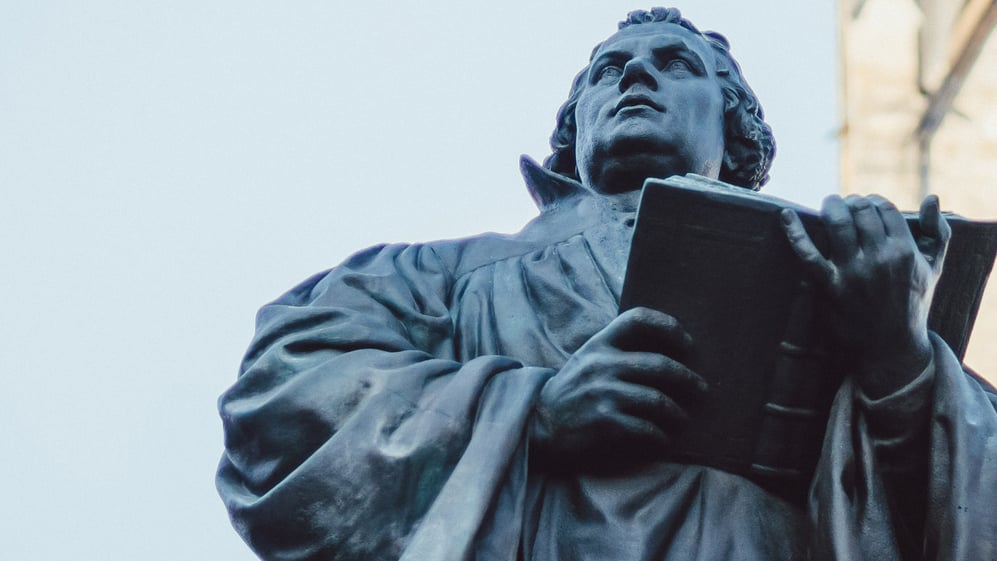The following excerpt is from a sermon Luther preached in 1524 and was selected as the conclusion for a sermon on Matthew 9:1–8, the Gospel reading for the Nineteenth Sunday after Trinity. Here Luther discusses “The Power to Forgive Sins on Earth.”
[33.] The Pharisees certainly knew that forgiving sins is God’s work and belongs to Him alone. For this reason they regarded Christ as a blasphemer, who as a man tried to forgive sins [Matt. 9:3]. Sins are forgiven in two ways: First, sin is driven out of the heart and grace is poured in; only God does this. Second, the forgiveness of sins is proclaimed; one man does this to another. Christ, however, does both: He puts the Spirit into the heart and outwardly proclaims it with words. This is a proclamation and public preaching of the inward forgiveness.
[34.] All people who are Christians and baptized have this power. In this way they praise Christ, and the words are put into their mouths, so that they can say, whenever they want and as often as it is necessary: “Look, dear man! God offers you His grace and forgives all your sins. Be comforted, your sins have been forgiven. Only believe it and you surely have it.” This sound should not cease among Christians until the Last Day: “Your sins have been forgiven. Be cheerful and comforted!” A Christian always has such words in his mouth and publicly speaks the words in which sins are forgiven. Thus in this way a Christian has the power to forgive sins.
[35.] Accordingly, when I say to you: “Your sins have been forgiven,” then regard it as just as certain as if God had said it to you Himself. Who would try to do this if Christ Himself had not descended, had not put it in my mouth and said that we should forgive sins to one another? He said in John [20:22–23]: “Receive the Holy Spirit. Whosesoever sins you remit, they are remitted; and whosesoever you retain, they are retained.” In another place He said: “If two among you agree on what they want to ask for, it will be done for them by My Father in heaven. For if two or three are gathered in My name, I am there among them” [Matt. 18:19–20]. The Word is what does it; it penetrates [cf. Heb. 4:12].
[36.] Now, if there were no one on earth who forgave sins, but there were only Law and works, how timid and miserable a poor distressed conscience would be! But now, when God has filled everyone’s mouth so that he can say to another: “Your sins are forgiven,” no matter where you are, the golden year has begun. Our confidence and boast against sin is that I can say to my brother, who is stuck in the anguish and danger of sin: “Be cheerful and comforted, my brother, because your sins have been forgiven. Even though I cannot give you the Holy Spirit and faith, I can nevertheless proclaim this to you. If you believe it, you have it.” Now, whoever receives this praises and glorifies God, just as they also do here in the Gospel reading [Matt. 9:8]. This means that God has given to human beings the authority to forgive sins, and this means increasing the kingdom of Christ and comforting and supporting the conscience. We now do this through the Word. God grant that we so take hold of it too.
Amended from Luther’s Works Volume 79, pages 202–3. © 2016 Concordia Publishing House. All rights reserved.






.jpg?width=50&height=50&name=IMG_20220621_160541_456%20(1).jpg)








